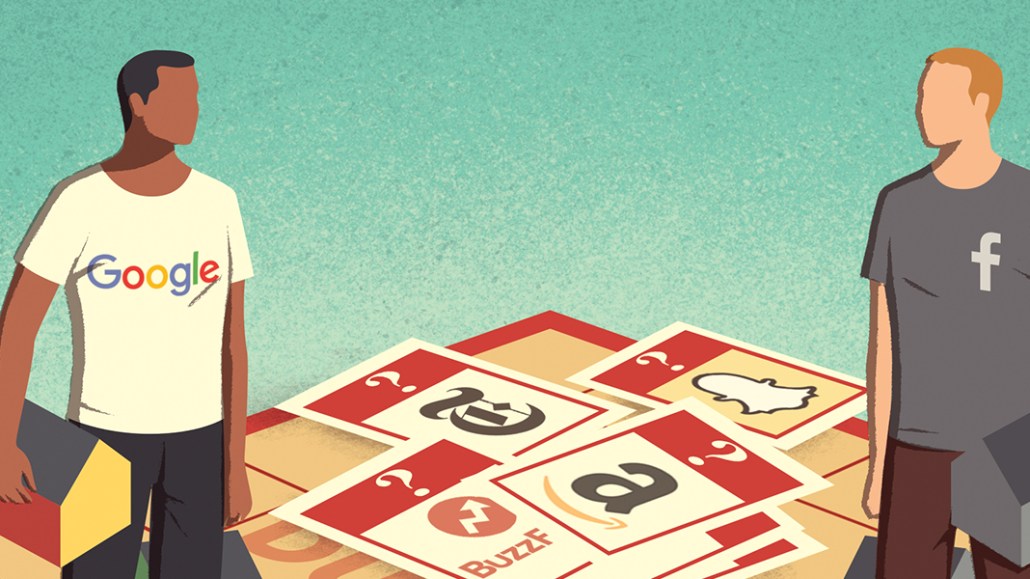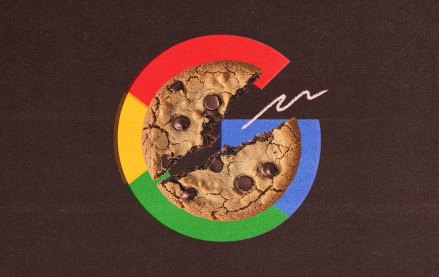‘Last chance’: German publishers unite on unified log-in to combat the duopoly

The battle for consumer logins is on in Europe with Germany leading the charge.
In two weeks, an alliance of 20 media, e-commerce, agency ISP businesses in Germany will officially launch a unified consumer login product, created to give consumers total control of their data privacy and consent settings, which are now stricter under the General Data Protection Regulation. The concept is that any user that creates a login will be assigned a centralized privacy-settings center that they can manage, and that will work across all the sites and digital properties of the partners.
“This is the European market’s last chance to change this [imbalance],” said Sven Bornemann, former board member of Germany’s online marketers association AGOF, who has been appointed CEO. “With the dominance of Google and Facebook, user data is drifting away to the walled gardens and leaving the German market, meaning publishers and agencies are’t able to use that data anymore.”
Broadcasters Prosiebensat.1 and RTL group, along with an ISP called United Internet, formed the alliance in 2017. Since then they have accumulated more partners, including publishing houses Spiegel and Gruner+Jahr, regional publisher Ippen Digital, and national newspaper Süddeutsche Zeitung. E-commerce companies Otto Group, C&A, Zalando, Conrad Elektronik, Douglas, Scout24 and parcel service DPD, along with media agencies GroupM Germany and Pilot Gruppe.
In March, the alliance established a not-for-profit European NetID Foundation, a neutral body that will oversee the unified ID system.
The forthcoming ePrivacy regulation, which is currently set up to drastically reduce the ability to use third-party cookies for ad tracking, remains a real concern in Germany. That, plus other developments such as Apple’s anti-tracking changes in its Safari browser, have added to the consensus that the third-party cookie is on the wane, according to Bornemann.
“Third-party cookies are losing their importance,” said Bornemann. “Long before the ePrivacy law will start, the browser industry will have killed the third-party cookie.” The consequences will be that the online user can’t be followed or identified by publishers or the digital market anymore, he added.
Although the alliance is currently made up of German businesses, the plan is to open it up across Europe, starting with the partners that already have offices outside Germany.
Via the settings, consumers will be able to choose what data they’re willing to share, and with whom, via a selection of tick boxes. Publishers that use consent management platforms will be able to pass those consent signals to partners in their digital advertising supply chain.
Prosiebensat.1, RTL and United Internet have upgraded their existing registered customers with the unified ID and login. That means that there are 35 million people who already have the NetID login, a decent base from which to start. That’s roughly 60 percent of the online population, which is around 60 million, according to Statista. After mid-October, all partners will increase their promotion of the need for the login in order to build that number further.
New attempts at publisher alliances continue to crop up all over Europe, as a way to compete with the dominance of Facebook and Google, despite their checkered history. However, the partners insist this one is different from the typical set-up and stands a better chance due to the fact a unified consumer login doesn’t lend any strategic advantage to any partner. That’s different to many other alliances where publishers agree to pool inventory but often hold back the best data and offers to sell individually, rather than via the alliance itself.
Naturally, media agencies and ad tech vendors don’t have direct customer data themselves and so won’t be part of the actual unified login implementation. Instead, they will pay an annual fee to participate on the committees to discuss future requirements and help shape and inform the future product roadmap for the implementation.
Germany has always had a unique relationship with data privacy. Despite that, consumer awareness of GDPR was at around zero until March, when the arrival of the law’s enforcement began to get mainstream consumer coverage, according to Bornemann. But GDPR is a positive development for marketers, according to Marcus Hartmann, chief data officer at Prosiebensat.1.
“Consumers are annoyed about getting ads in the wrong context,” said Hartmann.”There is far more value for a business or advertiser in knowing the person you’re addressing. If you can address your target customer in a more specific way, that’s of higher value for the marketer because you become a more valuable partner, but also for the consumer, because you take away all the noise and only provide relevant messaging.”
More in Media

Creators are left wanting more from Spotify’s push to video
The streaming service will have to step up certain features in order to shift people toward video podcasts on its app.

Digiday+ Research: Publishers expected Google to keep cookies, but they’re moving on anyway
Publishers saw this change of heart coming. But it’s not changing their own plans to move away from tracking consumers using third-party cookies.

Incoming teen social media ban in Australia puts focus on creator impact and targeting practices
The restriction goes into effect in 2025, but some see it as potentially setting a precedent for similar legislation in other countries.








